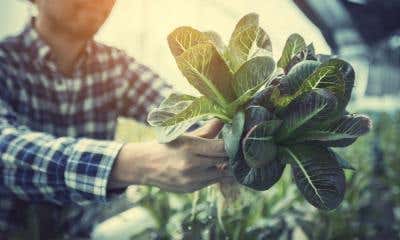Energy Consumption
One significant environmental concern in cannabis cultivation is energy consumption. Indoor cultivation facilities often require high levels of energy to maintain optimal growing conditions, including lighting, temperature control, and ventilation. This heavy reliance on energy can contribute to greenhouse gas emissions and strain local energy grids. To reduce the environmental impact, growers can explore energy-efficient lighting systems, renewable energy sources, and improved facility design to minimize energy consumption.
Water Usage
Cannabis cultivation also has implications for water resources. Plants require water for growth, and improper irrigation practices can lead to excessive water usage, placing strain on local water supplies. Additionally, runoff from cultivation sites can introduce nutrients and chemicals into nearby waterways, potentially harming aquatic ecosystems. Implementing water-efficient irrigation techniques, collecting and reusing water, and using responsible nutrient management strategies can help minimize the water footprint of cannabis cultivation.
Land Conversion and Habitat Loss
The expansion of cannabis cultivation can lead to land conversion, particularly in areas with suitable growing conditions. This land conversion can result in the loss of natural habitats, biodiversity, and valuable ecosystems. It is important to prioritize responsible land use practices, such as repurposing existing infrastructure, utilizing brownfield sites, and implementing sustainable land management techniques. Protecting natural habitats and incorporating biodiversity conservation measures can help mitigate the environmental impact of cannabis cultivation.
Pesticide and Fertilizer Use
The use of pesticides and fertilizers in cannabis cultivation can have environmental implications. Improper application or excessive use of these substances can lead to soil and water contamination, as well as harm beneficial insects and organisms. Prioritizing integrated pest management practices, organic cultivation methods, and using environmentally friendly pest control measures can reduce the reliance on harmful chemicals and minimize the impact on ecosystems.
Waste Management
Cannabis cultivation generates waste that requires proper management to prevent environmental harm. This includes plant waste, packaging materials, and wastewater. Responsible waste management involves recycling, composting plant waste, utilizing sustainable packaging options, and implementing effective wastewater treatment systems. By minimizing waste and implementing sound waste management practices, the environmental impact of cannabis cultivation can be reduced.
Sustainable Cultivation Practices
Adopting sustainable cultivation practices is essential to mitigate the environmental impact of cannabis cultivation. This includes incorporating renewable energy sources, optimizing water usage, protecting natural habitats, using organic cultivation methods, implementing responsible waste management, and promoting biodiversity conservation. Certification programs and industry standards can help guide growers in adopting sustainable practices and ensuring environmental stewardship.
The environmental impact of cannabis cultivation should be a consideration as the industry continues to expand. By addressing issues such as energy consumption, water usage, land conversion, pesticide use, and waste management, growers can minimize their ecological footprint. Embracing sustainable cultivation practices not only reduces environmental harm but also promotes the long-term viability and resilience of the cannabis industry. Through collective efforts, the cannabis community can contribute to a more sustainable and environmentally conscious future.
















